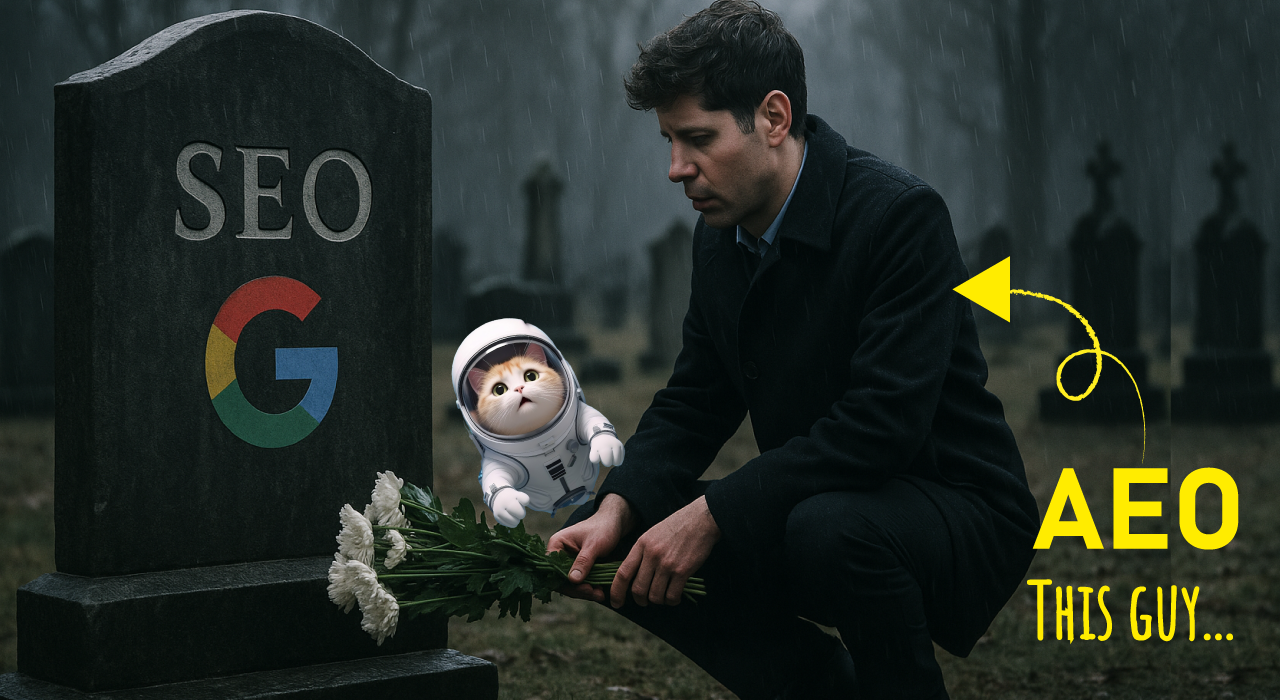
Search is going through its biggest transformation since Google first launched. We're not just dealing with algorithm updates anymore—we're watching the entire foundation of how people find information online get rebuilt from the ground up.
Google's rolling out SGE (Search Generative Experience), ChatGPT is handling millions of queries daily, and Perplexity is gaining serious traction. These aren't just new tools; they're fundamentally changing what it means to be "found" online.
Industry forecasts suggest that by 2027, more than half of all search traffic will come from AI-generated responses rather than traditional blue links. That's a massive shift, and it's happening faster than most people realize.
Remember when SEO was all about stuffing the right keywords into your title tags and building as many backlinks as possible? Those days are fading fast.
Now we're dealing with something different entirely. AI systems don't just crawl your content—they actually read it, understand it, and decide whether it's worth citing. They're looking for content that can answer real questions in a way that makes sense to actual humans.
This means we're optimizing for Answer Engine Optimization (AEO) now, not just traditional SEO. Instead of fighting for position #1 in search results, we're competing to be the source that AI systems trust enough to quote.
As one recent industry report put it: "Content creators are no longer competing for pageviews—they're competing for citations by machines."
Look, I get it. Another SEO shift feels exhausting. But here's the thing—this one's different because it's not going away.
If you stick with old-school SEO tactics, you're going to watch your traffic slowly disappear as more searches get answered directly by AI. Your carefully optimized pages will become invisible because AI systems can't understand or cite them properly.
But if you start thinking like an answer engine now, you can actually get ahead of this curve. You can become the go-to source for high-intent questions in your niche. You can get quoted by AI platforms that millions of people use every day.
The businesses that figure this out early are going to have a huge advantage.
I've been testing different tools to see what actually works for this new landscape. Here are the ones that have made the biggest difference:
has become my go-to for understanding how people actually ask questions about topics. I use it to draft FAQ sections and test whether my content can handle natural language queries.
combines content creation with real SERP analysis, which helps me see what's already ranking and what gaps exist.
shows me the nested question patterns that AI systems love to reference. It's like getting inside the mind of how people naturally follow up on topics.
visualizes the long-tail questions people are actually typing into search boxes.
helps create content outlines that are rich with the entities and concepts that AI systems look for.
The key is using these tools to think in questions, not just keywords. AI systems reward content that flows naturally from one logical point to the next.

Grammarly is an AI-powered writing assistant that helps improve grammar, spelling, punctuation, and style in text.

Notion is an all-in-one workspace and AI-powered note-taking app that helps users create, manage, and collaborate on various types of content.
Here's what I've learned works: structure everything around the questions your audience is actually asking.
Instead of starting with "Our product offers advanced solutions," start with "How do you solve [specific problem]?" Then give a clear, direct answer right away.
Use your H2 headings as natural questions: "Why does this happen?" "What's the difference between X and Y?" "How long does this take?"
The best performing content I've seen lately answers the main question within the first 100 words, then uses the rest of the article to provide context, examples, and related information.
AI systems seem to prefer this approach because it mirrors how people naturally seek and process information.
Start with an audit of your existing content. Pick your top 10 pages and ask yourself: if someone typed a question into ChatGPT about this topic, would my content be helpful enough to cite?
Then try this exercise: take one of your articles and rewrite the introduction as if you're directly answering someone's question. See how it changes the tone and clarity.
Begin incorporating tools like Frase or AlsoAsked into your content planning process. They'll help you see the question patterns you might be missing.
Most importantly, start tracking whether AI engines are citing your content. Search for topics you cover in Perplexity or Bing Chat and see if your site shows up as a source.
We're in the middle of the biggest shift in how information gets discovered and consumed online. The companies and creators who adapt quickly are going to have a significant advantage over those who wait.
This isn't about abandoning everything you know about SEO—it's about evolving your approach to work with how search is actually functioning now. The fundamentals of creating valuable, well-structured content haven't changed. But the way that content gets discovered and used definitely has.
The goal isn't to rank #1 anymore. It's to become the answer that AI systems trust enough to share with their users.

